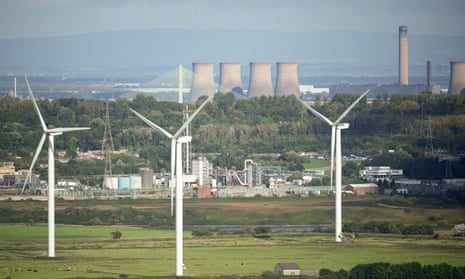
In a notable shift, the United Kingdom experienced a 20% reduction in electricity generation from gas and coal power plants last year, marking the lowest consumption of fossil fuels since 1957.
Not since the era of Prime Minister Harold Macmillan and the first meeting of the Beatles' John Lennon and Paul McCartney has the UK seen such a diminished reliance on coal and gas.
A recent report from industry journal Carbon Brief revealed that gas power plants contributed 31% (98 terawatt hours) of the UK's electricity in the past year, while the sole remaining coal plant met a mere 1% of the country's power demand, producing 4 terawatt hours.
The decline in fossil fuel consumption was attributed to a surge in renewable energy generation, coupled with increased electricity imports from France and Norway, alongside a sustained decrease in overall demand.
Last year, higher power imports were driven by an uptick in nuclear power from France and hydropower from Norway, reversing the trend observed in 2022 when the UK became a net exporter of electricity due to nuclear outages in France.
Carbon Brief's analysis indicated that gas and coal power plants constituted just over one-third of the UK's electricity supplies in 2023, while renewable energy sources claimed the largest share at a record 42%.
This marked the third consecutive year in this decade where renewables, encompassing wind, solar, hydro, and biomass power, outperformed fossil fuels. Together with Britain's nuclear reactors, which contributed 13% to electricity supplies, low-carbon electricity made up 55% of the UK's electricity in 2023.
Dan McGrail, the CEO of RenewableUK, emphasized the pivotal role of clean power sources in Britain's energy transition. He highlighted collaboration with the government to expedite the construction of new projects and supply chains amidst intense global competition.
Comparing figures to 2008, Carbon Brief found that electricity generation from fossil fuels was two-thirds lower in 2023, with coal experiencing a 97% reduction and gas a 43% decline over the past 15 years.
Further reductions in coal power are anticipated in 2024 following the planned shutdown of the Ratcliffe on Soar coal plant in September, owned by the German utility Uniper. The closure signifies a major step as the plant has been operational for 24 years.
Renewable energy has surged sixfold since 2008, driven by the construction of wind and solar farms, as well as the transformation of generating units at the large Drax coal plant to burn biomass pellets.
Despite a 22% drop in electricity demand since its peak in 2005, driven by energy-efficient homes, appliances, and a decline in the manufacturing sector, demand is projected to double as the UK strives to achieve net-zero emissions by 2050, relying heavily on electric alternatives for transport and heating.
Recent approvals for four large offshore windfarms, including the world's largest at Hornsea 3 off the North Yorkshire coast, signal a continued commitment to renewable energy. Additionally, a €1 billion deal between German utility RWE and Sweden's Vattenfall for the Norfolk Boreas, Norfolk Vanguard East, and Norfolk Vanguard West projects is expected to revive plans previously hindered by rising supply chain costs.
